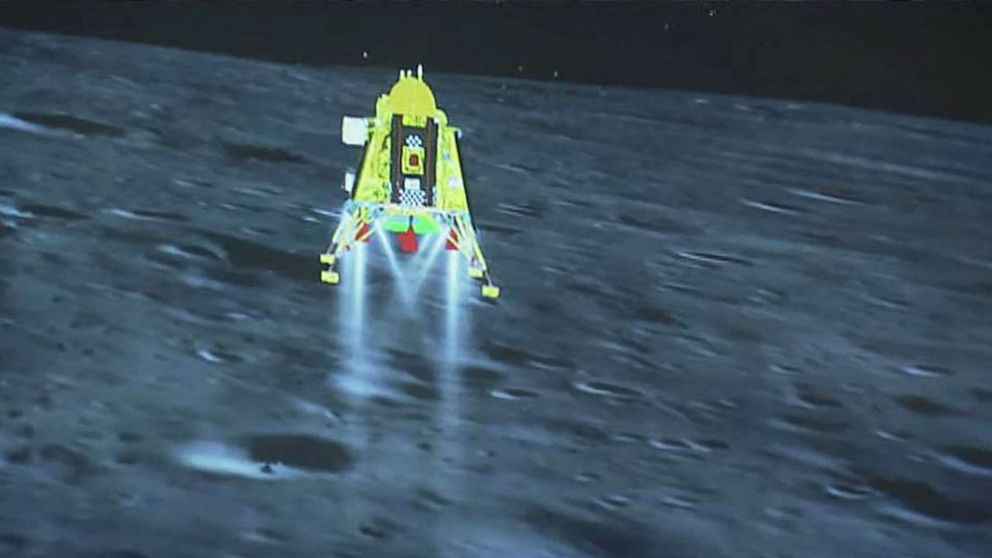India on Wednesday became only the fourth country in the world to land a spacecraft on the moon, and the first to do so in the lunar south pole region.
The Indian Space Research Organisation (ISRO) launched the mission, known as Chandrayaan-3, in mid-July, with the spacecraft traveling a forty-day, fuel-efficient course before touching down at 8:34 a.m. ET.
India now joins the U.S., Russia and China as the only countries to successfully land a spacecraft on the lunar surface.
“Chandrayaan-3 Mission: ‘India, I reached my destination and you too!” the ISRO announced upon touchdown. “Chandrayaan-3 has successfully soft-landed on the moon!”
A “soft landing” is one in which the spacecraft touches down intact, with little to no damage.
Indian Prime Minister Narendra Modi appeared in a video stream displayed in the ISRO control room as he watched the landing from South Africa, where he is attending a conference, and expressed his pride in the mission’s success.
“India’s successful moon mission is not just India’s alone…this success belongs to all off humanity, and it will help moon missions by other countries in the future,” Modi said. “We can all aspire for the moon and beyond.”

The Chandrayaan-3 spacecraft seconds before its successful lunar landing on the south pole of the Moon in an image from the live video feed on Indian Space Research Organisation (ISRO) website, Aug. 23, 2023. India became the first nation to land a craft near the Moon’s south pole, with Prime Minister Narendra Modi calling it a “historic day”.
Indian Space Research Org. via AFP/Getty Images
Now that the soft landing has occurred, the remaining objectives of the Chandrayaan-3 mission are to demonstrate the rover moving on the moon and “to conduct in-situ scientific experiments.”
The lander and rover will be functional for about two weeks, during which time researchers will study several things, including the temperature of the lunar surface, lunar seismic activity, the chemical composition of rocks and soil, and any variation in the moon’s thin atmosphere.
The lunar south pole in particular is a desirable region for study due to the detected presence there of frozen water, but it has not been well explored due to its rugged terrain, which includes impact craters.
India previously attempted to reach the moon in 2019, but its Chandrayaan-2 spacecraft failed due to a last-minute software glitch, resulting in the lander crashing onto the moon’s surface.
Chandrayaan-3’s successful landing comes just four days after Russia’s Luna 25 spacecraft, launched on August 11, crashed into the lunar surface as the country attempted to return to the moon for the first time since Luna 24’s successful landing in 1976.
NASA has previously announced that for its Artemis II missions, which will send American astronauts back to the moon, it is also looking to reach the lunar south pole.
In June, when Indian Prime Minister Modi visited the U.S., he and President Joe Biden issued a joint statement hailing the countries’ relationship and their collaboration in several fields, including space.
In the statement, NASA announced it will provide training to Indian astronauts at the Johnson Space Center in Houston, Texas, “with a goal of mounting a joint effort to the International Space Station in 2024.”

